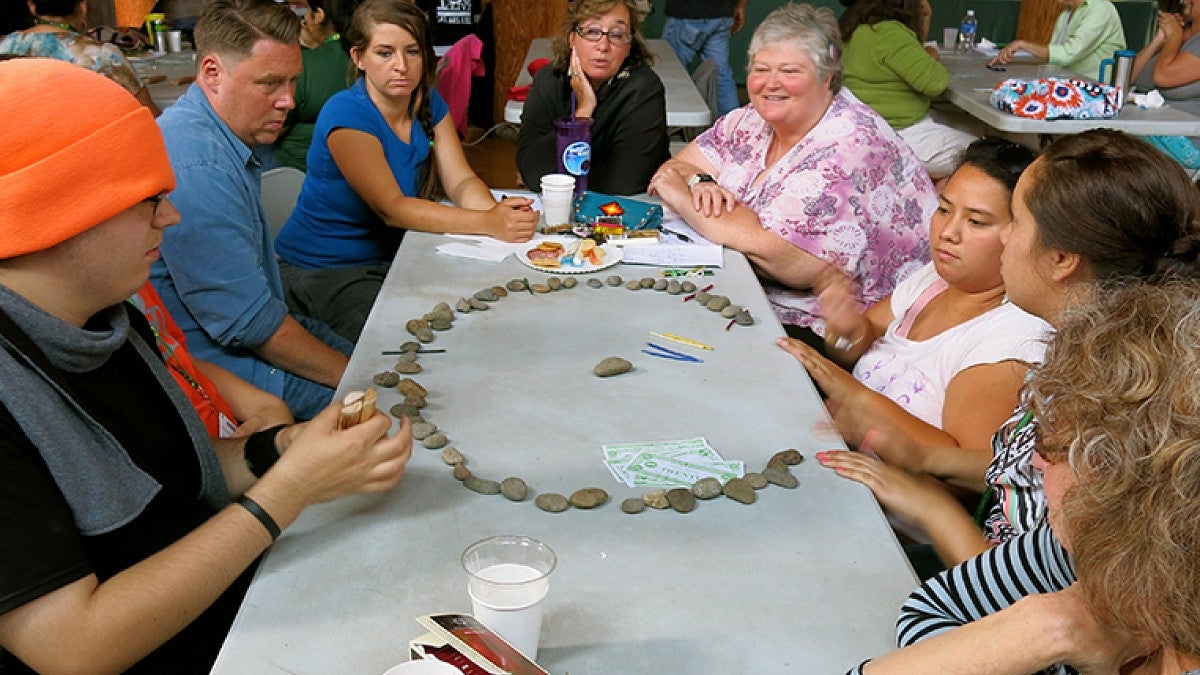The systemic oppression and destruction of cultural groups can have effects that linger for generations, a phenomenon known as historical trauma. Affected groups experience a range of responses similar to post-traumatic stress disorder (PTSD), including an increased risk for depression, low self-esteem, anxiety, anger and substance abuse.
“Almost every tribe in the United States has suffered relocation, forced assimilation and the loss of parts of their cultural heritage,” says Janne Underriner, director of the Northwest Indian Language Institute (NILI). “As English and shared media have become more prevalent, maintaining a link to the rich cultural traditions that define them as a people has become increasingly difficult.”
The Northwest Indian Language Institute at the University of Oregon is developing a new approach to the problem that uses language and cultural instruction to protect youth who might otherwise be at risk for substance abuse and other behaviors.
The project is run in collaboration with the Yakima Nation Language Program, the Yakima Reservation Wellness Coalition, three school districts and Michelle Jacob of the University of California, San Diego and Heritage University.
Originally funded by an award from the Native American Center for Excellence (NACE), NILI has been working with the Yakima Nation to develop an in-school program that provides language instruction and cultural connections to high school students. Using a multigenerational approach, elders interact with students to instruct them in Ichishkiin, the language of the Yakima Nation. The students, in turn, share what they have learned with younger students on campus.
The program is already seeing evidence of successful implementation. Students are gaining a strong identity as language bearers who can use the language to make a positive influence on their younger relatives. They are also being called upon to teach the Ichishkiin language to their parents, some of whom are suffering from historical trauma. Students are more secure and more likely to say “no thanks” when offered alcohol or drugs by their peers.
The project recently received additional funding from the Bill & Melinda Gates Foundation to continue their work and to expand on their successes. The funds from the Gates Foundation will be used to train high school students in digital storytelling techniques so they can create interactive e-books to share with preschool classes on their campuses.
The grant from the Gates Foundation will also enable NILI to continue working with teachers to develop culture and place-based language curriculum and to support both teachers and students who want to attend NILI’s Summer Institute.
To learn more about NILI’s work with communities across the Northwest, read the full story from the Office for Research & Innovation.
—Andrew Stiefel, Office for Research & Innovation


